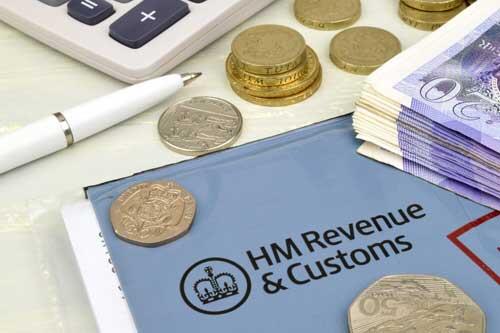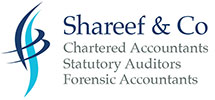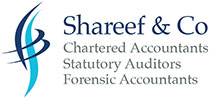
In the modern day of computers, HMRC have finally got it right that they now ‘risk assess’ each case and where their sophisticated ‘Connect’ system throws out red warning signs, then HMRC will usually commence an enquiry.
At Shareef & Co Chartered Accountants we assist clients with tax investigations across all taxes, including: personal tax, corporation tax, partnerships, capital gains tax, inheritance tax, VAT, stamp duty land tax and PAYE/NIC.
Even the good guys could face the unfortunate event of a tax investigation (civil or criminal). We work closely with you and for criminal cases, with you and your own solicitor.
Enquiries and investigations from HMRC are becoming more frequent and, (apart) as well as being stressful, they are time consuming and costly. The end result could well be significant tax, interest and penalties. So, at the outset, it is absolutely crucial to be represented by experienced, qualified Chartered Accountants and Forensic Accountants. Our firm have the added advantage and step ahead with our staff boasting over 200 years’ combined experience in tax enquiries so you are assured you will be well represented. Our technical knowledge and experience will guarantee a thorough representation with outstanding results. Our reputation, success and track record is exceptional. We can provide details of client testimonials to show our remarkable success.
Whatever the reason for the enquiry or investigation we can help, giving you the opportunity to concentrate on other aspects of life or your core business. We are experienced at dealing with, liaising and corresponding with HMRC, calculations, negotiating a payment or reaching a fair settlement if needed. Our team is capable of dealing with every scenario, personal or business oriented.
HMRC Code of Practice 9 Enquiries
COP9 investigations are the most serious type of civil investigation undertaken by HMRC and are conducted by its elite Fraud Investigation Service (FIS). All HMRC FIS officers are specialist fraud-trained investigators and should not be under-estimated.
COP9 investigations are only opened where HMRC suspects a loss of any tax or duty through the deliberate, fraudulent activity of a taxpayer. For this reason, the initial letter from HMRC opens with “HMRC have information that gives us reason to suspect that you have committed tax fraud.”
When HMRC FIS issues a COP9 investigation, it provides you with a one-time offer, known as the Contractual Disclosure Facility (CDF), whereby you will receive immunity from criminal investigation and/or prosecution in return for:
- Admitting you have acted deliberately in failing to declare income, gains or duties; and
- Agreeing to fully disclose all omissions and irregularities that have arisen in the last 20 years
By accepting HMRC’s CDF offer, you are also agreeing to pay a minimum penalty of 35% of the unpaid tax (A higher percentage applies if the liability involves offshore activities), in addition to the interest that has accrued over those 20 years.
Under the CDF procedure the taxpayer is required to provide HMRC with an outline disclosure setting out all of the areas where tax fraud has taken place at the outset. The taxpayer is given 60 days to prepare the outline disclosure from the date they were offered the opportunity to participate in the CDF procedure.
The first stage of this type of tax investigation could involve a formal meeting with HMRC. During the meeting HMRC will seek further detail in respect of the outline disclosure provided, as well as the taxpayer’s personal and business affairs. The taxpayer will generally be required to attend this meeting.
After this the taxpayer is expected to commission a report, to be prepared by their tax adviser, which sets out in detail the taxes underpaid and provides as much evidence as possible to demonstrate that the figures now disclosed are, as far as possible, correct. We will of course prepare this on your behalf. In many cases there is not sufficient documentary evidence to arrive at precise figures, so assumptions and estimates will underlie some of the figures in the report. HMRC will review all the evidence included in the report and thoroughly test any assumptions and estimates, before negotiating the final settlement.
By making a full disclosure under CDF the taxpayer can reduce the financial penalties HMRC will seek when it comes to negotiating the final settlement.
We have successfully represented a number of clients who have been subjected to tax investigations under Code of Practice 9 – Contractual Disclosure Facility. This is the core offering of our practice and in all cases, we have been able to reach a civil settlement with HMRC.
Our team has many years’ experience in attending the initial formal meetings with HMRC, agreeing the scope of the report, and then preparing the report on the taxpayer’s behalf.
HMRC Code of Practice 8 Enquiries
If HMRC suspects that there has been a “serious” loss of tax but they do not suspect that this arises as a result of tax fraud then they will open the tax investigation under Code of Practice 8 (COP8). In most cases these enquiries will be into the tax affairs of taxpayers who have participated in a tax planning structure or tax avoidance scheme. Cases under Code of Practice 8 are carried out by HMRC’s Fraud Investigation Service teams.
If a tax payer deliberately try to pay less than the correct amount or take advantage of a scheme or device to reduce a tax liability. If HMRC suspect this, they will investigate under Code of Practice 8 to establish the facts to recover any tax, interest and penalties due. HMRC will not undertake this investigation with a view to a criminal prosecution but may take a different approach if they suspect or find evidence of fraud at any time during the investigation. HMRC may then deal with the investigation under Code of Practice 9. Or, if it is being conducted with a view to criminal prosecution, HMRC will investigate under the Police and Criminal Evidence Act 1984 and the Criminal Procedure and Investigation Act 1996 and their respective Codes of Practice.
Usually, we advise the tax payer to co-operate with HMRC, so your attendance at meetings is an important part of that co-operation. Meetings give HMRC and the tax payer both a chance to ask questions and clarify points throughout the investigation. HMRC’s investigation may take longer if their only contact with the tax payer is by letter. HMRC will make a written record of the meetings and the tax payer can ask for a copy. HMRC may ask the tax payer to sign a copy of the notes to show that they accurately reflect what is said, but you do not have to. We usually insist meetings to be conducted at our professional offices.
We have successfully defended a number of clients who have been subjected to tax investigations into tax planning and tax avoidance schemes. We are quickly able to understand the technical issues that are the key to the dispute and put forward robust technical arguments to defend our client’s position.
If you are subject to a tax investigation under Code of Practice 8, please contact us for a free, confidential and no obligation discussion. We are happy to have an initial free of charge meeting with prospective clients.
- Personal tax investigation.
- Offshore tax investigation.
- HMRC compliance checks.
- PAYE investigation.
- Tax Tribunal services.
- Tax fraud and evasion.
- Company tax investigation.
- Worldwide Disclosure Facility.
- VAT investigation.
NCA Tax Enquiries
The NCA are able to investigate your Tax Returns, instead of HMRC, if they suspect Money Laundering under Section 317 of the Proceeds of Crime Act 2002.
Our services include the following;
- Client representation in connection with investigations conducted by Her Majesty’s Revenue and Customs (“HMRC), the Serious Fraud Office (“SFO”), National Crime Agency (“NCA”) and the City of London Police.
- The preparation of documentary and other evidence in support of your defence case.
- The provision of quality expert witnesses to assist with the presentation of forensic evidence.
- An experienced team who will conduct negotiated settlements with prosecuting authorities where appropriate.
- Advice on prospective appeals.
R&D Claims
Significant tax incentives have been introduced by the Government in recent years to encourage companies to carry out research and development (R&D).
The tax credits introduced for small and medium sized companies, in particular, are increasingly generous and can help to offset the costs of R&D, which can be substantial and stretch over a number of years before delivering a return. Large companies can take advantage of the R&D expenditure credits. Our team is experienced at claiming back tax for companies in both of these areas across a wide range of business sectors and the R&D opportunities are much wider than generally appreciated.
We are part of a network that have a specialist team including both tax Advisors and qualified engineers to maximise R&D tax credit claims. Focusing on research and development, our aim is to identify potential claims working alongside our clients. There is no upfront cost, only a success fee. Alternatively, if preferred, we can work with you or a member of your team training you on our systems to allow you to carry out and submit claims yourself.
Capital Allowances Claims
Expenses incurred in a business are either capital or revenue expenditure. Revenue expenses are normally expensed for repairs, for example repainting walls. Whereas capital expenditure is usually expenditure on items which provide an enduring benefit for trade. This expenditure is usually not deductible from trading profits, so a measure of tax relief is received in the form of Capital Allowances.
Capital allowances are also available to those who have incurred qualifying capital expenditure on the construction, fit out, refurbishment or acquisition of commercial property within a trade. This can include offices, hotels, restaurants, retail, industrial, mixed use developments and various others.
Capital allowances are not given automatically, they must be claimed in a tax return. However, there is no time limit on claiming capital allowances, as long as the asset is still owned and used within the trade.
We advise that when acquiring a property or completing refurbishment projects, capital allowances are considered at early stages to maximise tax savings potential.
We are part of a network that have a specialist team that includes both Tax Advisors and Chartered Surveyors to seek claims on capital allowances in commercial buildings (large or small) for our client. We can quickly identify potential claims, working with a member of our team to complete our qualifying questionnaire, saving you time and unnecessary research. There is no upfront cost, only a success fee in which you share. These claims are almost never claimed when purchasing a commercial property as they are never separately identified on purchase, but this does not allow you to make a retrospective claim.



 This website uses both its own and third-party cookies to analyze our services and navigation on our website in order to improve its contents (analytical purposes: measure visits and sources of web traffic). The legal basis is the consent of the user, except in the case of basic cookies, which are essential to navigate this website.
This website uses both its own and third-party cookies to analyze our services and navigation on our website in order to improve its contents (analytical purposes: measure visits and sources of web traffic). The legal basis is the consent of the user, except in the case of basic cookies, which are essential to navigate this website.